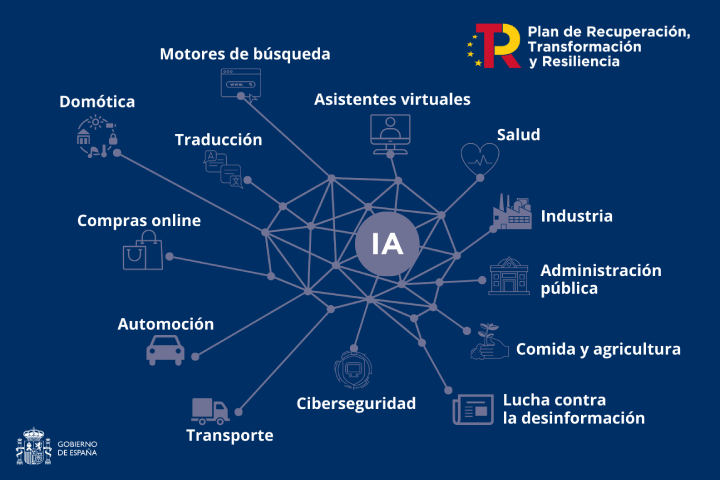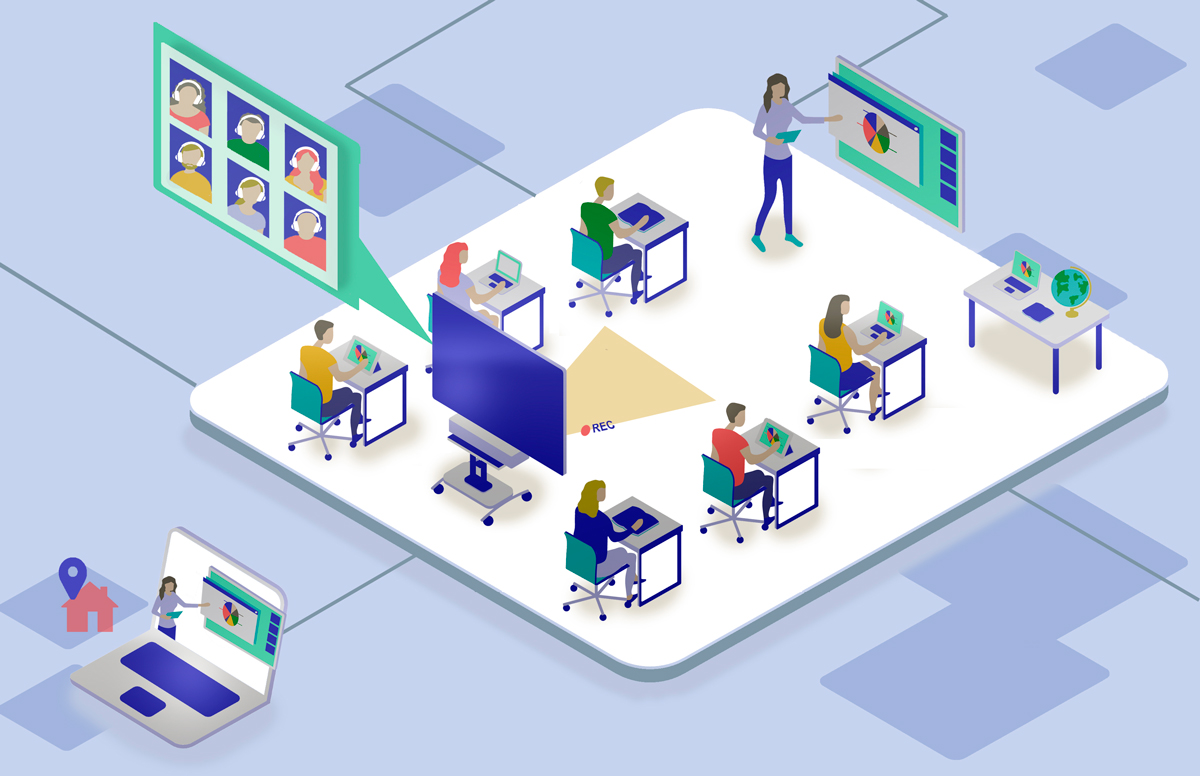Artificial Intelligence (AI) has transformed the way companies operate and engage with their customers.
But the question arises: Is AI an advantage or an obstacle for companies?
In this article, we explore the impact of AI on the business environment and how current students in disciplines such as marketing, international trade and management can benefit from this ever-evolving technology.
Although this is only the principle of AI, it can already be said that it is a significant advantage for companies in various aspects.
However, this new technology also poses challenges and obstacles for businesses. Fear of automation and possible job losses is a common concern.
In addition, successful AI implementation requires significant investment in resources, training and adaptation of existing business processes.
What is artificial intelligence? and what uses does it have
Nowadays artificial intelligence has not yet been well defined, there is still no formal and accepted definition of AI.
The European Commission defines artificial intelligence as a complex set of computer and software systems designed by humans acting in the physical or digital dimension.
This AI is able to perceive its environment through the acquisition and interpretation of structured data or not.
It also has the ability to reason about its knowledge, able to process the information derived from this data which gives it the ability to decide on what is the best action to achieve the established objective.
On the other hand, artificial intelligence is currently being integrated into the main commercial sectors in Spain.
Some of these cases are, for example, home automation, online shopping, translation software, many new vehicles, cybersecurity and many more sectors.

AI Benefits for students
Analysis of advanced data:
Current students will now be able to have contact with big data analysis tools on a more daily basis due to AI.
Therefore, it will be more common to have incorporated into their training the analysis of large amounts of data efficiently and extract valuable information for decision-making.
In marketing, for example, AI can help identify patterns of consumer behavior, customize marketing strategies, and predict future trends.
Automation of routine tasks:
AI can free professionals from repetitive and tedious tasks, allowing them to focus on higher value activities.
Students in fields such as international trade can benefit from using AI to automate administrative processes, streamline the supply chain and optimize logistics.
Improved customization and customer experience:
Tools and algorithms that use AI enable more effective personalization in customer interaction.
Students can learn how to use these technologies to create personalized experiences, manage customer relationships and improve customer satisfaction in the field of business management.
Innovation and product development:
Innovation can be driven by AI, as such technology helps identify opportunities and design products or services more tailored to market needs.
Students can use AI to perform predictive analytics, market research, and improved product development in fields such as marketing and business management.
The relationship between artificial intelligence and education
We have already made it clear during this post that artificial intelligence is not commonly used in large industries, but is now also beginning to be incorporated in other sectors, and one of them is education
It is true that not all the applications of AI in the field of education have yet been discovered, yet it is one more tool capable of transforming and improving this field deeply.
This innovation is able to reduce difficulties in accessing learning, so it would make education more accessible to those with learning difficulties.
So the implementation of AI in education will encourage more people to benefit from the different educational programs that can be offered.
The Impact of Deepfakes and the Fake News
In the digital age, Artificial Intelligence (AI) has revolutionized the way companies operate and engage with their customers.
However, along with the benefits of AI, there are also challenges that need to be adequately addressed.
Two of the most significant challenges are the proliferation of deepfakes and fake news, which raise ethical concerns and potential threats to companies in various aspects.
Deepfakes, which are AI-generated images and videos that appear to be authentic but are manipulated, can undermine confidence in the information and reputation of companies.
The ability to create compelling fake content poses risks in areas such as data security, branding and misinformation-based decision-making.
Companies must be aware of this challenge and take proactive steps to detect and counter deepfakes, both within their own organisation and in the public sphere.
On the other hand, fake news, which is fake or misleading news spread massively through digital media, also represent a major challenge for companies.
The spread of misinformation can damage companies’ reputation, damage customer relationships and affect strategic decision-making.
It is essential that companies develop strategies to combat fake news, such as source verification, promotion of media literacy and transparency in corporate communication.
Companies must be aware of these challenges and prepared to face them ethically and effectively.
By adopting sound information management practices and promoting media literacy, businesses can minimize risks and maximize the potential of AI in a constantly evolving business environment.
Potential to be discovered
In conclusion, while AI offers numerous benefits for businesses, such as automation and advanced data analysis, it also poses significant challenges, especially in relation to deepfakes and fake news.
However, for students in fields such as marketing, international trade and management, AI has vast potential benefits.
Leveraging this ever-evolving technology can enable them to improve decision-making, automate routine tasks, customize experiences and foster innovation in their future careers.
It is essential that students acquire the skills and knowledge necessary to understand and use AI ethically and effectively, thus taking advantage of all its advantages in today’s business world.



